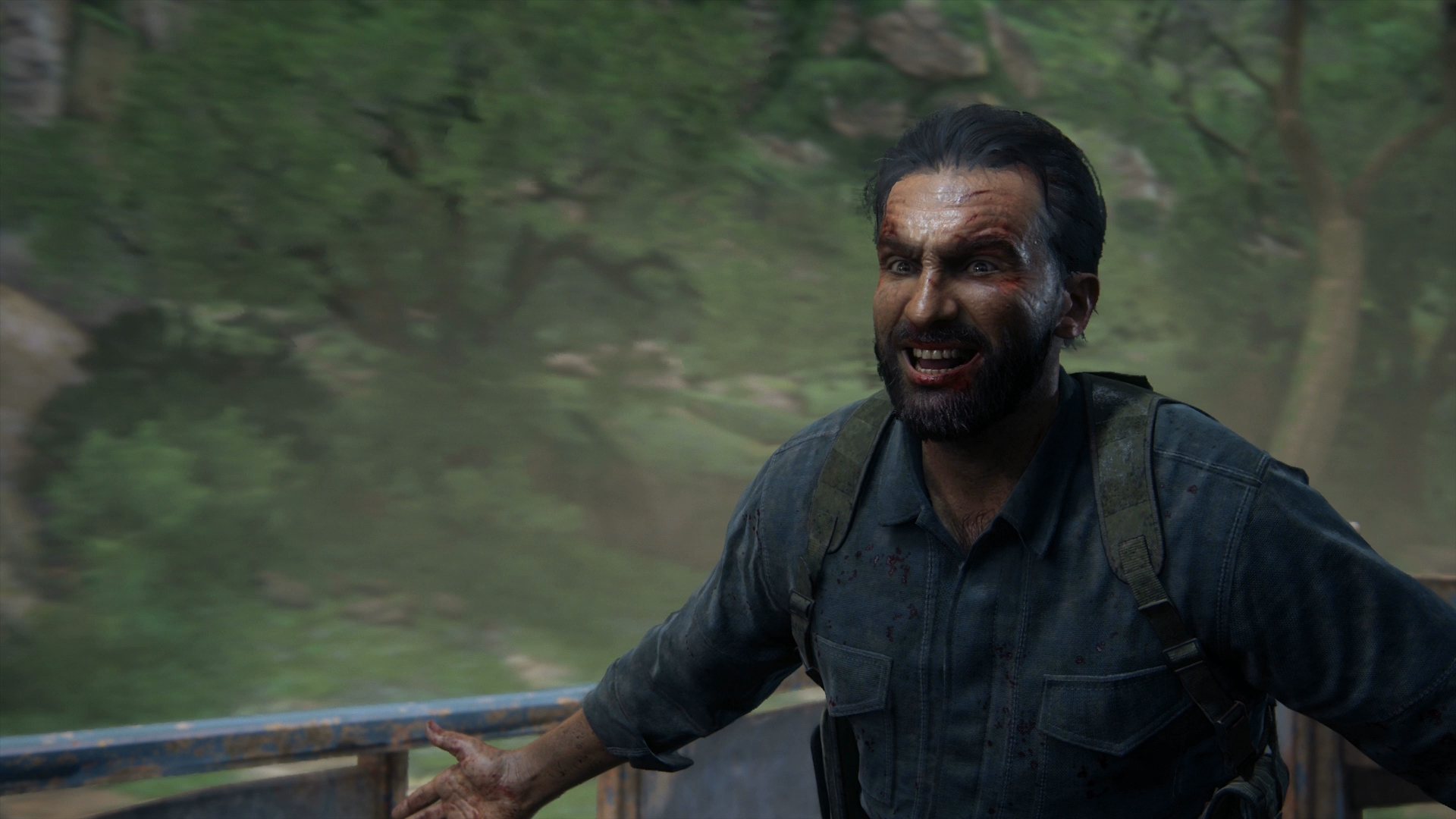Uncharted: The Lost Legacy Review
Platform: Playstation 4 (Pro)
Developer – Naughty Dog
Publisher – Sony Interactive Entertainment
MSRP – $39.99
This game was reviewed on the PlayStation 4 Pro, with a review copy provided by Gaming Instincts.
Introduction
Uncharted: The Lost Legacy
is a new story, set after the events of Uncharted 4: A Thief’s End. You take on the role of fan favorite Chloe Frazier, partnered with Uncharted 4 antagonist and ex-mercenary Nadine Ross. Working on the tail end of her father’s research, Chloe Frazier and Nadine Ross set out on an adventure of epic proportions to recover the Tusk of Ganesh. However, our female protagonists aren’t the only ones set on on acquiring the ancient artifact. An Indian rebel leader named Asav also seeks to steal the tusk to aid his cause and rally his people. Uncharted: The Lost Legacy will take players far and deep into the jungles of India as you uncover secrets of the past and solve elaborate puzzles.

Story
The story of Uncharted: The Lost Legacy is what players would expect from an Uncharted Game. The writing for the Uncharted series is put together well, allowing for natural game dialogue and situations. They all tend to have the same theme: chasing an ancient totem that has some personal meaning to the protagonist, foiled by someone who is actively pursuing it at the same time. Uncharted: The Lost Legacy follows this archetype, as Chloe Frazier’s personal connection to the Tusk of Ganesh motivates her to keep going. Coincidentally, a warlord is also pursuing the tusk in the hopes it will bring him success. On the other hand, Nadine Ross is mostly in it for the money, hoping she can reacquire her mercenary company: Shoreline. But in typical Uncharted fashion, it’s only a matter of time before her motivations change.
The story, though, is a pleasant departure from the classic Nathan Drake story line in which players have been tagging along since Uncharted: Drake’s Fortune was released in 2007. This time players follow Chloe Frazier, a fan favorite protagonist introduced in 2009’s Uncharted 2: Among Thieves. Her background is more fleshed out, and players get to explore her personality as they progress through the game. Nadine Ross’ background is also explored as players see a side of her they didn’t get to see in Uncharted 4. Throughout the game, Nadine explains her motivations and thoughts on the events of Uncharted 4. Both her and Chloe’s characters are complex but well written, with their backgrounds served in digestible chunks.

The Main Villain
Antagonist, Asav, is more one-dimensional than the rest of the cast of characters. The only information players are given on Asav is the fact that he wants to use the Tusk of Ganesh to rally the Indian people and ignite a revolution. There isn’t much of a backstory for Asav, another element common in the Uncharted series. And, like previous iterations, the antagonist has an overwhelming force behind him to appear more evil and dangerous.
Like any good Hollywood villain, he’s charming, devious and relentless.
However, Asav is not a bad villain. Like any good Hollywood villain, he’s charming, devious and relentless. Asav’s men have the ability to materialize throughout the story. Just solved a fifteen minute puzzle and are ready to reap the rewards? Boom, explosion through the wall and Asav’s men show up. Just uncovered crucial details pertaining to the Tusk of Ganesh? Boom, armored truck through the wall and Asav is there. This happens way too often in the Uncharted games and we move along knowing it’s just a tool used to progress the story. It’s conveniently inconvenient.

Character Interaction
One thing the Uncharted series has always been able to impress players with is character interaction. The dialogue written for the characters feels natural. The interactions between Chloe and Nadine changes as the game progresses in natural fashion. The characters hardly know each other in the beginning of the game. As they travel together they open up, as real people would. Dialogue becomes more humorous, emotions surface and body language between the two becomes more relaxed, rather than defensive. Coupled with the cinematic cutscenes, brilliant motion capture and awesome graphics, Uncharted: The Lost Legacy feels as though it was written and directed by Hollywood’s best.

Combat
The gameplay of Uncharted: The Lost Legacy stays true to the formula of all of the Uncharted games. Gun-play is simple and easy to understand. Most gunfights occur in open areas. Arena style locations allow players to move around cover and even sneak away from enemies to flank them. Some areas can be cleared of enemies without triggering detection if players move carefully and have silenced weapons, which are scarce in Uncharted: The Lost Legacy. Enemies can be taken out in a variety of ways ranging from drop-down attacks to headshots. Enemies can also be pulled down over ledges and grabbed from hiding places for an instant kill.
Different enemy types require specific tactics to take down. A juggernaut type enemy brandishing a shotgun cannot be attacked from the front without risk. Sneaking behind them and taking them out with a headshot is the best way to avoid taking unnecessary damage.
Enemy AI can be pretty devious in combat.
Cover can also be destroyed, whether it be Chloe’s or the enemy’s. Bullets will pick apart cover piece-by-piece, but larger weapons like MG’s and rockets will destroy it almost immediately. Enemy AI can be pretty devious in combat. While some enemies may charge you head-on, brandishing a shotgun, some are a little more calculated. Lower level enemy types can sneak around cover and avoid a player’s line of sight. In an instant they can be right next to Chloe, pummeling her with melee attacks.
When a laser sight trained on Chloe, it’s time to duck for some cover. Snipers carry high-powered rifles and with just one hit they can drain a majority of Chloe’s health. Using the environment to your advantage is the key to survival in Uncharted: The Lost Legacy.

Puzzles
The environmental puzzles are designed well and easy to understand. Most of them are pretty straightforward and a few can actually kill Chloe if players aren’t careful. These brain-teasers provide a challenge, but don’t take long to complete. Many of them are based around Hindu legends and provide detail on the story of Ganesh and the Indian gods. Some require players to traverse the landscape, others require climbing larger-than-life structures. Make one false move and Chloe could plummet to her death. Some puzzles require some time and thought, while others literally put players on edge while Chloe swings from structure to structure under a time limit.

Conclusion
Uncharted: The Lost Legacy
is a nice departure from the main Uncharted storyline. The decision to bring back previous characters and place them into a new story was an interesting decision by developer Naughty Dog. Nadine Ross was a prominent antagonist in Uncharted 4, but toward the end of the base campaign she walked away and left players wondering what would become of her. At least we get some closure on characters like her.
Uncharted: The Lost Legacy deserves the standalone DLC title and price. The game takes around eight hours to complete. There is plenty of content in the main story, supplemented by the Uncharted 4 multiplayer that is included with the game.
Uncharted: The Lost Legacy was a blast to play. The series has always delivered a mix of high-octane action, impressive visual graphics and interesting characters. Uncharted: The Lost Legacy certainly has all of these. We wouldn’t mind playing as Chloe Frazier again, or even as Nadine Ross as these two are chock-full of experiences and could definitely have more adventures ahead of them.
No related posts.






